Light, like the Word of God (Hebrews 4:12), is a double-edged sword that cuts both ways, shattering those who resist it but healing those who embrace it.
On the Shoulders of Hobbits, Louis Markos
In Mere Christianity, C.S. Lewis describes our world as a battlefield. He says we are living in “enemy-occupied territory” (Book 2, Chapter 2). Just turn on the news or read the headlines from around the world, and you’ll see that he’s right. We live in a dark world that seems to only be getting darker.
But it’s important to note that Lewis does not say we are living in enemy territory—only enemy-occupied territory. Therein lies our hope. We know how the story ends: Jesus gets the victory.
The epic stories J.R.R. Tolkien and C.S. Lewis wrote serve as powerful reminders that evil cannot stand (and will not stand) forever. They remind us that the power of the darkness is not stronger than the power of the light.
There is evil within and evil without, but there is something—someone—“greater than the one who is in the world” (1 John 4:4 NIV).
And they remind us that though the Darkness may overwhelm, stifle, and even threaten to suffocate us, it has a vulnerability. The Eye of Sauron has a blind spot.
As Louis Markos says in On the Shoulders of Hobbits, the “only reason that Sam and Frodo are able to smuggle the One Ring into the heart of Mordor is because Sauron is incapable of perceiving that someone who possessed the Ring would seek to destroy it.” Sauron could not conceive that “someone would willingly forsake power” (168).
This is the brilliance of the Gospel. This is the Light of God shining in our darkness. God did, through Christ, the one thing the enemy would have never guessed: He sent his own son to die for mere mortals.
Jesus didn’t come to conquer the world; he came to redeem it. He came to remove the power of sin over this dark land and set its captives free. He came to give us life in the place of death, to lay down his life for ours.
This is our hope in enemy-occupied territory. Like Frodo and Sam’s journey, this road is fraught with discouragement, temptation, distress, death, and fear. This isn’t an easy road to travel. We may be tempted along the way by Egyptian allies, White Witches, and “the forbidden fruit of the One Ring.” But our hope is in this: In each of us, there is a moral consciousness at work, a call to virtuous living. There is what Lewis called “The Law of Human Nature” (Mere Christianity). There is free will to choose—daily—whom we will serve.
We can walk in the Light or fumble around in the Dark. We can follow the moral compass placed within us or follow the “lust of the eye, lust of the flesh, and pride of life (see 1 John 2:16)” as Isildur did (Markos 148).
As Markos says, “Not only is darkness unable to overcome the light; it cannot even comprehend it (166). Jesus did the one thing the enemy didn’t see coming: He gave himself as a sacrifice. In a darkness-blinding act of love, he laid down his own life for the sake of his friends.
Every day, we are presented with opportunities to actively pursue virtue: We can listen to upright teaching, read good books, and feed our minds, bodies, and souls with life-giving food. We can practice forming good habits that we might be set apart and different, living lives that are consecrated to God’s pleasure. We can preserve, protect, and nurture that moral code written on our hearts. We can stand against evil, that “parasite on goodness” (Markos 156). We can fight (in the Spirit) against temptation and our sin nature. We can stand firm and faithful in the battle, like Samwise Gamgee, alongside our brethren.
These choices are daily and incremental. We practice virtue by choosing everyday faithfulness in ordinary moments.
When we lay down our lives in our families, our churches, our schools, and our communities, we shine light into dark places. When we do things no one is expecting us to do—when we love, when we give, when we do good unto others—we tell the story of hope.
In the end, the stories we tell—to ourselves, our children, and this generation—are more than important; they are essential. They tell us that though there’s evil all around (and the potential for evil in each of us), there is a greater power at work. They tell us that there is One who wins the day. Who changes hearts and lives. Who redeems. Who never gives up. Who always loves. Who always saves to the uttermost. With whom nothing is impossible and no one is unreachable.
But if we walk in the light, as he is in the light, we have fellowship with one another, and the blood of Jesus, his Son, purifies us from all sin.
1 John 1:7 (NIV)
This article originally appeared on Literary Life blog and Literary Life Facebook book club. Many thanks to Rick Wilcox for the opportunity to write this article and share it here!
Let’s Keep in Touch:
- Click here to subscribe to my blog. You’ll receive a FREE set of Jane Austen prayers cards as a welcome gift!
- Books & Gifts: When you purchase a Praying with Jane book, you’ll get a FREE prayer journal to go with it.

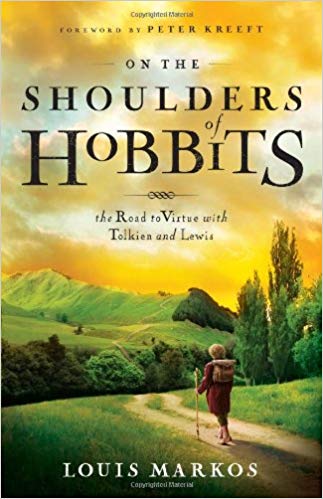
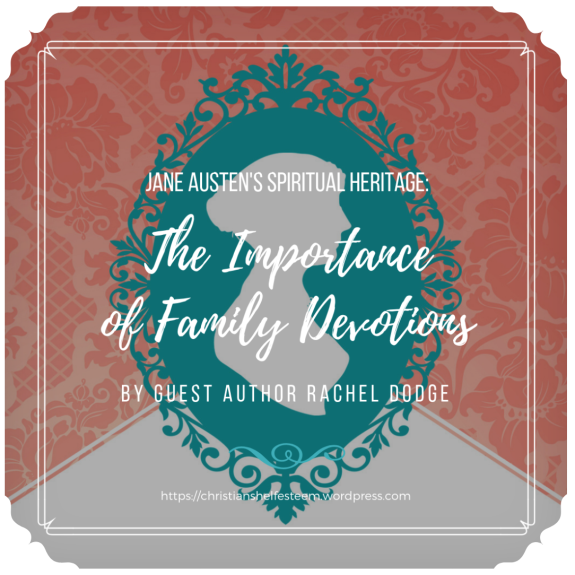
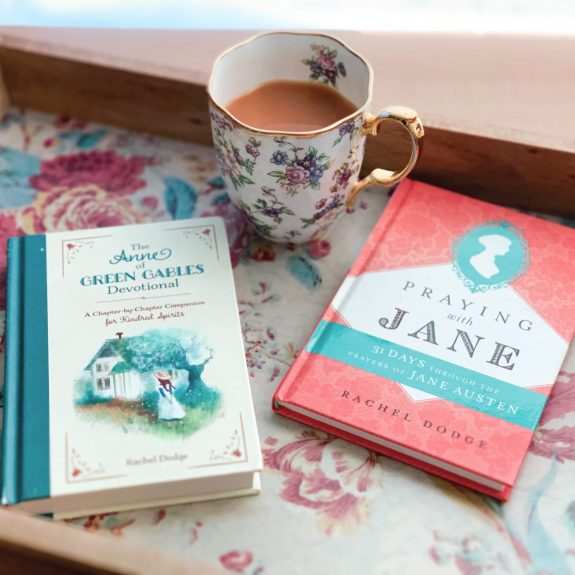

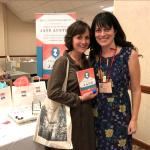
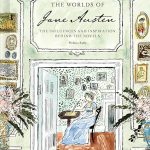

Leave a Reply